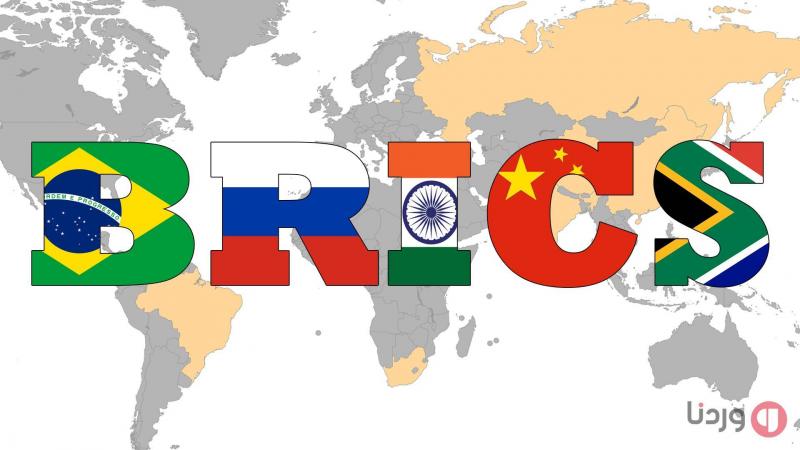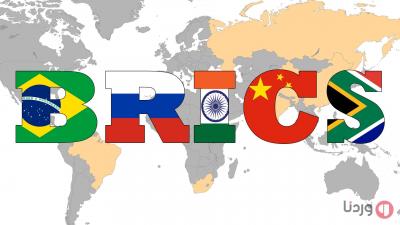The 15th BRICS summit kicked off last Tuesday in Johannesburg, South Africa, with the participation of leaders from the five member countries. The summit lasted for three days and resulted in a decision to invite six countries to join. So, what is the "BRICS" group and who are the countries set to join?
The BRICS group is a global economic bloc that originated from the first ministerial meeting of foreign ministers of Brazil, Russia, India, China, held in September 2006 alongside the United Nations General Assembly in New York. This bloc includes the five countries recognized as having the fastest economic growth in the world: Brazil, Russia, India, China, and South Africa. The term "BRICS" is an acronym formed from the initials of these countries' names. Over 40 countries have expressed interest in joining the BRICS group, with 23 countries submitting official applications.
BRICS has become one of the most significant economic blocs in the world due to the growth figures achieved by its member countries over the years, attracting many other nations wanting to join.
**Objectives of the BRICS Group**
The BRICS group aims to achieve comprehensive economic growth to eliminate poverty, tackle unemployment, and enhance economic and social integration. It seeks to unify efforts to ensure the improvement of growth quality by promoting innovative economic development based on advanced technology and skill development. The group intends to increase participation and cooperation with non-member countries and to foster security and peace for economic growth and political stability.
Additionally, it is committed to reforming international financial institutions to give emerging and developing economies a stronger voice for better representation within these institutions. The group coordinates and collaborates on energy efficiency to combat climate change and provides humanitarian assistance while reducing the risks of natural disasters, including addressing global food security issues.
**Who Applied for BRICS Membership?**
So far, 23 countries have sought to join BRICS out of more than 40 expressing interest, with Johannesburg proposing plans for expanding membership. The countries that have officially applied for BRICS membership include the UAE, Egypt, Algeria, Argentina, Bahrain, Bangladesh, Belarus, Bolivia, Cuba, Ethiopia, Honduras, Indonesia, Iran, Kazakhstan, Kuwait, Morocco, Nigeria, Palestine, Saudi Arabia, Senegal, Thailand, Venezuela, and Vietnam.
According to the American newspaper "The New York Times," the ongoing trade war between Beijing and Washington, along with the war in Ukraine, has reignited discussions about the status of BRICS, attracting interest from dozens of nations with diverse perspectives and economies.
The New Development Bank was established by BRICS in 2015 as an alternative to the International Monetary Fund and the World Bank.
**BRICS Agenda Items**
The expansion of group membership is at the top of the agenda after it was overlooked in previous summits. The second major topic is a common currency, where the bloc will revive discussions about reducing the dominance of the dollar in global trade payments, particularly after rising interest rates and the Russia-Ukraine war, which increased the strength of the American currency and the cost of dollar-denominated goods.
Many BRICS countries have begun settling bilateral trade transactions in local currencies. With intra-BRICS trade rising to 56%, approximately $422 billion over the past five years, and the GDP of BRICS countries nearing $26 trillion—over a quarter of global GDP—serious consideration is being given to enhancing the role of the New Development Bank by expanding its funding sources. This comes after its role diminished due to Western sanctions on Russia, which was one of its funding sources.
Furthermore, food security will be a key issue on the group's agenda, particularly due to actions taken by India and Russia, which have contributed to global food price increases. India has placed restrictions on rice exports to protect its domestic market, while Russia withdrew from an agreement ensuring safe passage for Ukrainian grain exports, adversely affecting food security in poorer nations.
In the final statement following the summit in Johannesburg, leaders expressed concern over the use of unilateral coercive measures that are inconsistent with the principles of the UN Charter and lead to negative consequences, especially in developing countries.
**BRICS Invites Six Countries to Join**
South African President Cyril Ramaphosa highlighted that the BRICS group has decided to invite six countries to join: Argentina, Egypt, Iran, Ethiopia, Saudi Arabia, and the UAE. He noted that the membership of these countries will take effect from January 1, 2024.
Despite previous support from BRICS member countries for the bloc's expansion, there were divisions among leaders regarding the number and pace of new admissions.
**Why Are Arab Countries Seeking to Join BRICS?**
Economic expert and editor of the "Strategic Intelligence" financial newsletter, James Rickards, pointed out that Saudi Arabia's entry alongside China would enhance BRICS' strength, especially since Saudi Arabia is one of the largest oil producers and exporters globally, while China is the largest importer.
Rickards also mentioned Brazil's dissatisfaction with the ongoing developments in the bloc, noting that the entry of new members could affect its strength.
Meanwhile, journalist and geopolitical economist, Saif Al-Din Qadash, argued that BRICS needs to invite strategic allies with natural and financial resources like Saudi Arabia and Algeria, asserting that the bloc's need for expansion is driven by current global shifts, primarily due to American pressures on Russia and China stemming from the Ukraine war.
**Does BRICS Threaten Washington's Dominance?**
Several American experts have stated that the BRICS summit does not represent a significant threat to the international order, which the United States established financially, politically, and legally after World War II. In a previous interview, National Security Advisor Jake Sullivan clarified that the U.S. does not view BRICS as a geopolitical rival, explaining that it is a diverse group with differing views on critical issues.
The concluding statement of the BRICS summit, known as the "Johannesburg Declaration," expressed leaders' concerns regarding the use of unilateral measures adversely affecting developing nations and supported reforms in the United Nations, including the Security Council, to add more democracy and effectiveness to the organization.




